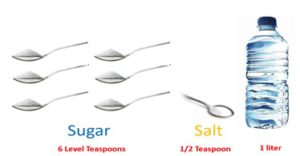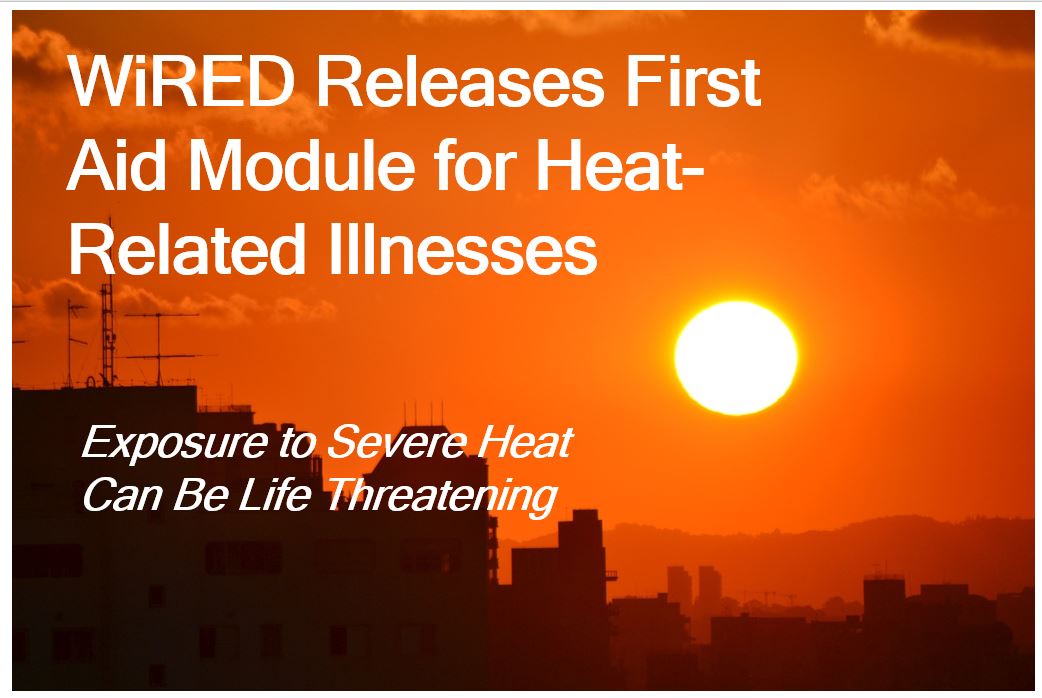By Allison Kozicharow; Edited by Elizabeth Fine
July 2023 is now the hottest month on record worldwide.
Extreme heat can endanger human health. The steep rise of global temperatures and the frequency and intensity of extreme weather due to climate change can lead to heat-related illness, according to the U.S. Centers for Disease Control and Prevention.
WiRED International has just launched a new module called First Aid for Heat-Related Illnesses [link to module]. This course describes illnesses related to extreme heat, their signs and symptoms, danger levels, causes, first aid measures, and prevention (based on World Health Organization guidelines).
Global temperature hikes make it especially important that people around the world recognize the three increasing levels of heat illnesses: heat cramps, heat exhaustion and heat stroke. Heat-related deaths and illness are preventable, yet many people still die from extreme heat every year. Particularly vulnerable are the elderly, infants and children, pregnant women, outdoor and manual workers, athletes and the poor (who may not be able to afford cooling devices or to access safe beverages to cool themselves).
You can lower your risk of heat illness by
- drinking fluids to prevent dehydration
- replacing lost salt and minerals and
- limiting your time in the heat.
WiRED encourages you to take a look at our First Aid for Heat-Related Illnesses module and learn more about the effects of extreme heat on the human body.
Thanks to WiRED’s team for quickly developing this module for public use. Our writers, researchers, editors, imagers, and computer technicians responded to the need for information on how to prevent heat-related illnesses and how to treat them when someone shows signs of illness. This evidence-based module will be translated into several languages.
Oral Rehydration Solution (ORS)*
Oral rehydration solution (ORS) is a helpful way to treat people who are dehydrated. Plain water does not provide essential electrolytes (salts and minerals), and often severely dehydrated people are unable to keep plain water down. ORS helps to replace the fluids and electrolytes that are lost through sweating and vomiting.
Prepared ORS powders can be used to make the solution, but they are not available in many places. If you don’t have prepared ORS, you can make your own with:
● 6 level teaspoons of sugar
● 1/2 level teaspoon of salt
● 1 liter of clean water
Dissolve sugar and salt in the water.
Be very careful to mix the correct amounts.

*Using ORS is referred to as Oral Rehydration Therapy (ORT)
To use ORS, WHO recommends giving children 50 to 100 milliliters (mL) (around a quarter to a half cup) of ORS every 15 minutes until they are rehydrated. Adults can drink 100 to 200 mL (around a half to a full cup) every 15 minutes.
ORS is safe for most people to use. However, consult a doctor before giving ORS to a child under 6 months old.


